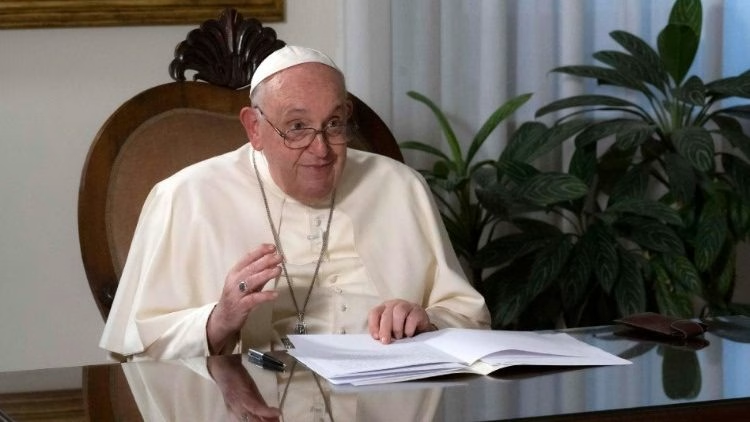Pope to theologians
“Promote a theology that, from the height of the Cross and on its knees before others, uses humble, sober, and radical words to help everyone approach compassion, and words, that teach us to approach the threshold of the Divine Mystery.”
Pope Francis gave this encouragement in a video message he sent to the Pontifical Theological Faculty of Sicily ‘St. John the Evangelist’ in Sicily’s capital of Palermo on Wednesday afternoon.¬
In his remarks for the opening of the institution’s new Academic Year, the Holy Father reflected on the diversity, beauty, and challenges of the Italian island, suggesting these elements can empower their efforts.

Dialogue and enrichment
The Pope began by recalling how, virtually addressing them, he, in a way, follows “in the footsteps of Saint John Paul II,” who visited the Faculty of Sicily on November 21, 1982, during his Pastoral Visit to Belice and Palermo.
“Your Faculty, born with a strong ecclesiological vocation,” Pope Francis encouraged, “is called by history and attentive to the sense of faith that the people of God possess, to be a protagonist in addressing the challenges that the Mediterranean poses to theology.”
In his remarks, the Pope urged them to move forward with ecumenical dialogue with the East, interreligious dialogue with Islam and Judaism, and to defend human dignity in the ‘Mare nostrum,’ “which,” he decried, “is often turned into a monstrosity by the logic of death.”
In addition, the Pope invited them to draw from the cultural and social strength of popular piety, and from literature “for the redemption of the cultural dignity of the people.”
Martyrdom
Moreover, Pope Francis reiterated the need to listen to “the cry” of victims of the mafia that are longing to be free from their hold in the territory, and in a special way, praised those who fearlessly combatted the scourge, even to the point of giving their lives.
“This land knows great witnesses and martyrs,” the Pope said, citing those who worked unceasingly to oppose organized crime in the territory “still tragically marked by the plague of the mafia.”
‚ÄúThis land knows great witnesses and martyrs‚ÄĚ
“Let us not forget this,” he insisted.
With this in mind, the Holy Father stressed that engaging in theological discussions in the Mediterranean requires “remembering that the proclamation of the Gospel passes through the commitment to promote justice,” overcoming inequalities, and defending innocent victims, so that the Gospel of life may always shine, and evil may be repelled in all its forms.”
Theology for approaching Divine Mystery
In this spirit, the Pope observed we need a theology “with a promise” and “a commitment,” that “immerses itself in history, and, in it, makes the charity of Christ shine.”
Pope Francis concluded by saying he embraced the Faculty members and asking them to pray for him.
Thank you for reading our article. You can keep up-to-date by subscribing to our daily newsletter. Just click here




Leave a Reply